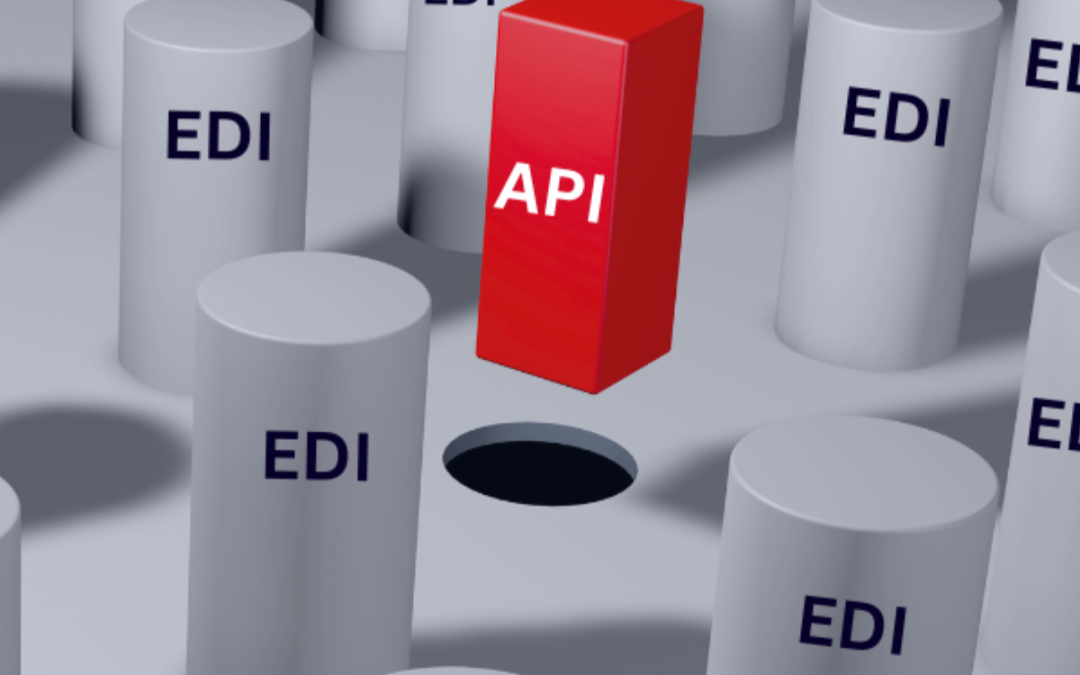Despite the rise of APIs, Electronic Data Interchange (EDI) remains critical for secure, reliable, and cost-effective B2B transactions. See why EDI isn’t going anywhere and why outsourcing it proves beneficial for many enterprises.
“Why is anyone still using EDI or need a Value Added Network (VAN)?”
This question surfaces often on forums in our industry, especially among developers, IT professionals and executives striving for cutting edge solutions. They see APIs as the modern standard. With every ERP offering APIs and data transfer costs shrinking, EDI can seem outdated at first glance to the unaware. However, the reality is: EDI isn’t going away because it still works better than anything else for many critical business processes.
At Promethean Software Services, we help companies incorporate APIs as part of an overall strategy to simplify EDI and VAN management so they can stay compliant, scalable, efficient and reduce ongoing costs. In this post, we’ll explain why EDI still matters, where APIs fall short, and why outsourcing EDI is often the smartest move.
Why EDI Is Still Relevant and Essential
1. It’s the universal language of supply chain transactions.
Retailers, logistics providers, manufacturers, and healthcare companies rely on EDI because it’s a battle-tested standard. If your trading partners require EDI (most large ones do) you don’t have the option to skip it.
2. It’s reliable and structured.
Unlike APIs, which vary widely in format and implementation, EDI uses standardized transaction sets. More importantly there are stringent intra-document standards that APIs simply do not contain or prioritize. These global as well as intra-document standards uniformity reduces errors, concentrates knowledge and ensures compliance with trading partner requirements- reducing development time and costs to implement what will essentially become a proprietary application for each trading partner and each document.
3. It’s compliant and secure.
EDI transactions are built around compliance standards like HIPAA, X12, EDIFACT, and more. It also supports secure transmission protocols, which are critical in regulated industries.
APIs vs. EDI: It’s Not a One Size Fits All Debate
APIs can be great for certain things. They’re flexible, fast, and ideal for real-time internal application integration. But when it comes to partner-to-partner communication across a supply chain, APIs come with real limitations:
•No universal standard: Every API is different, requiring custom development and maintenance.
•Limited compatibility: Trading partners often lack the infrastructure or willingness to switch to API-only systems.
•Higher long-term maintenance costs: APIs often require more frequent updates, version control, and troubleshooting.
•Requires higher maintenance and diverse skill sets and knowledge
Summary
In reality, APIs are devolving and not an evolutionary approach to electronic data interchange and connectivity. EDI standards and VANs were created to prevent businesses from having to develop proprietary applications and connections with every trading partner. EDI and VANs support the economies of scale associated with a one-to-many solution where APIs are the same one-to-one solution that instigated the need for EDI and interconnected VANs. In that sense, APIs are going back in time and recreating the problems that existed in the 1980’s.
Why Outsourcing EDI Is the Competitive Advantage
1. You don’t need to build or maintain it in-house.
Managing EDI internally requires specialized knowledge, dedicated resources, and 24/7 support. That’s a drain on your team and budget.
2. The right managed EDI partner ensures uptime, compliance, and adaptability.
From onboarding new trading partners to updating mappings, a partner like Promethean handles it all, so you don’t have to.
3. VAN services streamline your entire B2B communication process.
Promethean manages our Value-Added Network (VAN) connections with a cost structure that makes development and maintenance of API’s impractical and cost prohibitive. Our VAN is a one-to-many solution that ensures your documents get where they need to go securely, on time, and cheaper than developing and maintaining costly APIs.
EDI Isn’t Outdated. It’s Proven
EDI is still the backbone of B2B communication in industries where accuracy, speed, and security are non-negotiable. APIs are valuable, but they don’t replace EDI, and they introduce complexity in environments where standardization matters. So, if you are consumed with developing and maintaining APIs because it’s what EDI providers that do not have a publicly interconnected VAN are telling you is the “smartest and most modern” thing to do, understand you are going back in time and you are not leveraging the power of Promethean’s EDI and VAN platform.
Promethean Software Services simplifies EDI through custom integrations, VAN management, and expert support, so you can focus on growth, not infrastructure headaches.
Ready to modernize your EDI strategy?
EDI has been optimized to be the most logical option for many and will continue to adapt to meet future needs. Here at Promethean, we don’t treat it as either/or. We help businesses integrate APIs and EDI together, creating flexible, modern ecosystems that meet every customer’s requirement.
Let’s talk about how Promethean can help your business stay compliant, competitive, and future-ready.
Contact sales@prometheanssi.com

